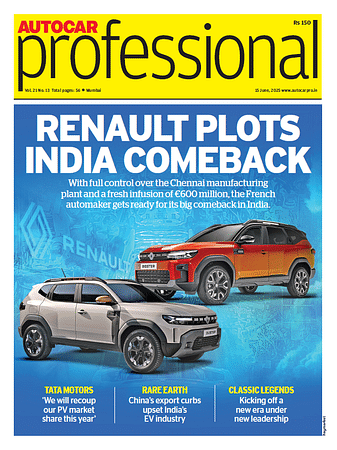BorgWarner’s heater tech used in BMW iX and i4
The company says the solution controls the battery’s thermal management and cabin heating and contributes to significantly enhancing the driving range and durability of the battery.
American tier 1 supplier BorgWarner has provided its High-Voltage Coolant Heater (HVCH) for BMW Group’s iX and i4 fully electric architecture.
The company says the solution controls the battery’s thermal management and cabin heating and contributes to significantly enhancing the driving range and durability of the battery.
Joe Fadool, president and general manager, BorgWarner Emissions, Thermal and Turbo Systems said, “For more than 20 years we have successfully cooperated with the BMW Group, providing them with numerous solutions for combustion-powered vehicles. We are especially pleased to also support their line of premium electric vehicles, contributing to the advancement of future mobility and a cleaner environment.”
The tier 1 supplier says generally available in power variants from 3 to 10kW for operating ranges between 250 and 500V, the HVCH supports OEMs in their vehicle development by providing a solution that features a compact modular design with reduced package size and weight. It has a high thermal power density and – due to its low thermal mass and high efficiency – enables fast response times when heating up. The key components of the HVCH include stainless steel thick film heating elements (TFE), which are housed in solid die-cast aluminium that offers electromagnetic shielding and resists thermal shock, vibration and mechanical stress. The robustness of the TFE delivers longer product life.
As part of its Charging Forward initiative, BorgWarner is accelerating the company's electrification strategy and has announced plans to grow electric vehicle revenues to approximately 45 percent by 2030, along with a commitment to achieve carbon neutrality by 2035.
RELATED ARTICLES
Horse Powertrain reveals integrated hybrid powertrain
Unit combines Horse Powertrain’s new 1.8-litre ‘HR18’ engine, its DB45S transmission, a 1.4kWh battery, and 50kW 5DH mot...
BMW Group to use natural fibre composites in its future models
Following several years of development and in-depth research, the BMW Group has reached series maturity of natural fibre...
Nissan reinvents Leaf as a sleek electric SUV with 600km range
First launched as a hatchback in 2010, the third-generation Leaf is unrecognisable compared with its predecessors. The n...





 By Autocar Professional Bureau
By Autocar Professional Bureau
 15 Feb 2022
15 Feb 2022
 10529 Views
10529 Views








